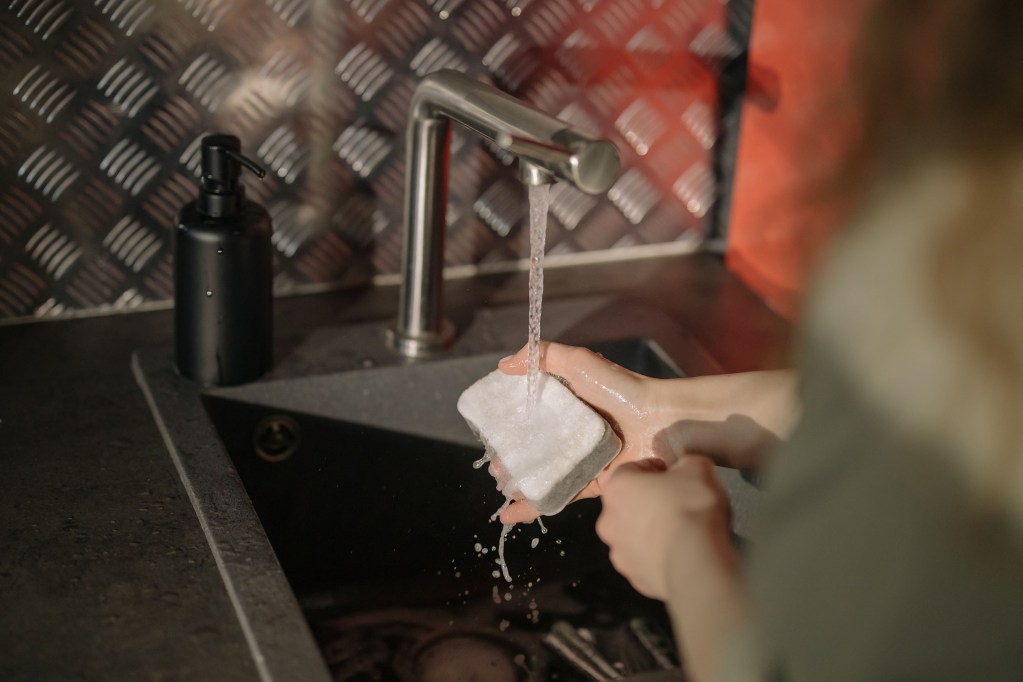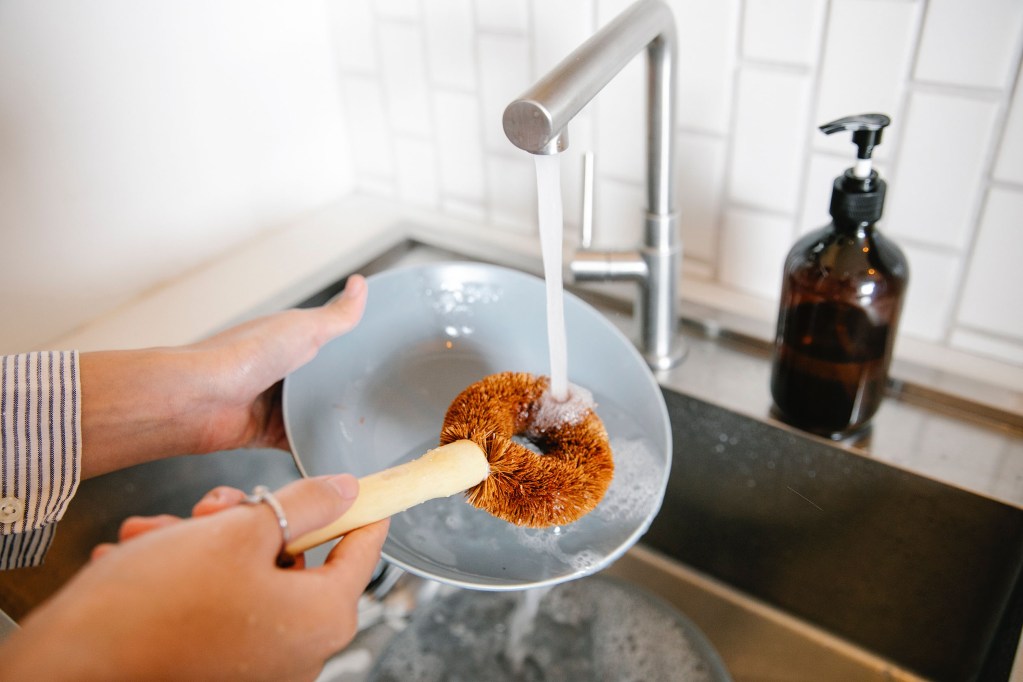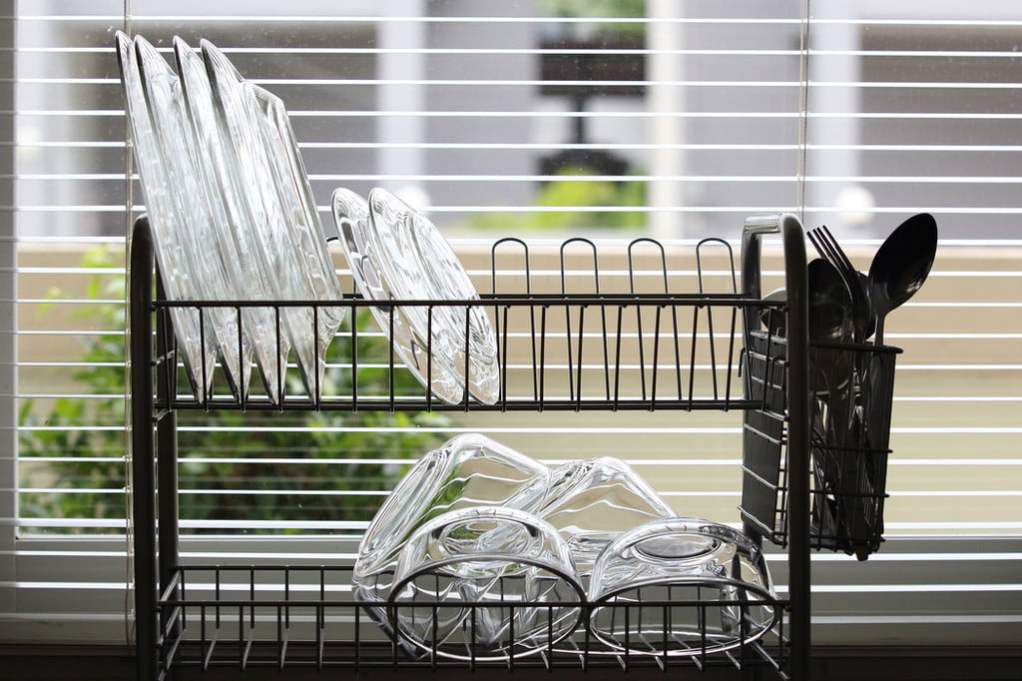The debate between dish sponge vs. brush can have many homeowners questioning which is best. While the sponge is often our tool of choice when it comes to doing the dishes, many homeowners argue that a dish brush can be just as handy! Whether you’re trying to decide what will best scrub your stuck-on stains or which tool will help you to maximize your dish soap, we have everything you need to know.
Here are the pros and cons of both of these scrubbing masters to see if you should make the switch from one to the other. The upgrade might be the improvement you need to revamp this pesky chore once and for all.

Everything you need to know about the beloved dish sponge
Sponges are the most common tool used to clean up the dishes. They are absorbent, affordable, disposable, replaceable, and tough on grime. Some sponges are as cheap as 50 cents, while others can cost you a dollar or more. Choosing the right brand for your home is all about perspective, budget, and lifestyle.
There are a lot of positives to using a sponge in the kitchen. Some pros of sponges are:
- Sponges are affordable. Although some sponges can get pricey, it is easy to find cheap, disposable sponges nearly anywhere.
- They are disposable and replaceable. Sponges can easily be disposed of in the trash after use.
- Many sponges have built-in scrubbing surfaces. The classic sponge has a soft side and a scrubbing side. This helps you get the stuck-on grime off with ease.
- They can be cleaned in the microwave. Sponges can be microwaved to kill off bacteria and germs. It is a great way to reuse your old sponges.
Even though sponges are seen as the go-to cleaning product, it doesn’t mean they are flawless. Some cons of the classic sponge include:
- They need to be replaced often. Many recommend replacing your kitchen sponge on a weekly basis. Since sponges can hold onto grime, food residue, germs, bacteria, and other gross stuff, it is important to ensure your sponges are disposed of and replaced on a regular basis.
- They get dirty, fast. Sponges are designed to absorb, so it’s no surprise they absorb plenty of gross dish residue. It can be difficult to wash a sponge with water only, so it is nearly impossible to ensure that lingering bacteria, germs, and food residue are completely gone.
- Cleaning your sponge can be time-consuming and stinky. Even though cleaning your sponge in the microwave is an option, it isn’t always ideal. It can create a strong odor in your kitchen and you’d also need to give it enough time to cool down before use.

Why some homeowners prefer using a scrubbing brush for their dishes
Brushes may not be everyone’s first pick, but they can be a real cleaning contender. Brushes have many great benefits that may convince some to ditch the sponge and make the switch.
Some pros of the brush include:
- More scrubbing power. Scrubbing dishes with the bristles of a brush can be a lot more efficient and effective than a sponge, states NYMag’s The Strategist.
- Better leverage. Brushes come in many shapes and sizes, so finding one that provides you with more leverage and a better grip can mean more cleaning power.
- Brushes are easy to clean and last long. Unlike sponges, brushes are not meant to be disposed of on a regular basis, as stated by The Spruce. It can be easy and quick to rinse off the bristles of a brush to ensure it is ready for use.
- Brushes can save you money. Since brushes aren’t disposed of regularly, they can help save money in the long run. Investing in a good brush can be a financially smart move.
- Environmentally friendly. Brushes can be better for the environment since you aren’t throwing them away on a weekly basis, like sponges.
Like everything else in the world, brushes aren’t perfect. They have cons just like many other products and items:
- Finding the right brush can be difficult. There are a lot of different brush types, so it is important to pick out the right one. Some may have bristles that are too tough that may scratch pans and pots. Other brushes may be too soft and end up being ineffective. Finding the perfect balance in the bristles, as well as the sturdiness of the handle is important.

Which should you choose: the dish sponge or brush?
Just like many other choices in life, this decision comes down to preference. Both sponges and brushes maintain a lot of great benefits. Some people may lean slightly more towards brushes because they aren’t as disposable as sponges. They can be tougher on grime, easier to clean up, and better for the environment.
However, they can both get the job done. You can always invest in one of each and make the decision for yourself. It may be a game-changer when you make the switch from one to the other.
Although doing the dishes is an unfavorable chore, you may be able to make it a little more tolerable with the right cleaning tool. When choosing between the brush or the sponge, it is important to assess your budget, lifestyle, and overall preference. Regardless of which you favor, brushes and sponges will still be the top two cleaning masters for doing the dirty dishes.



